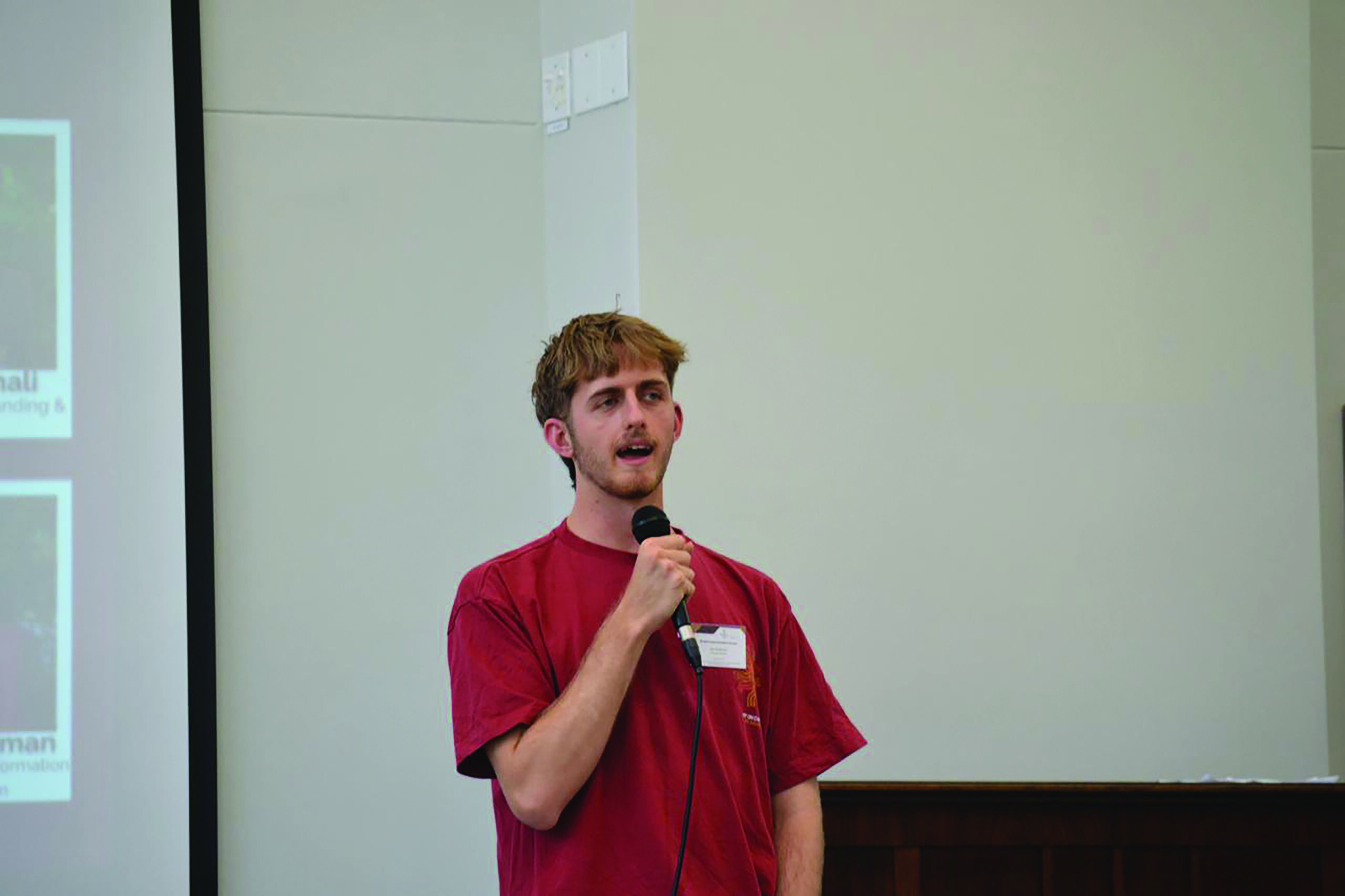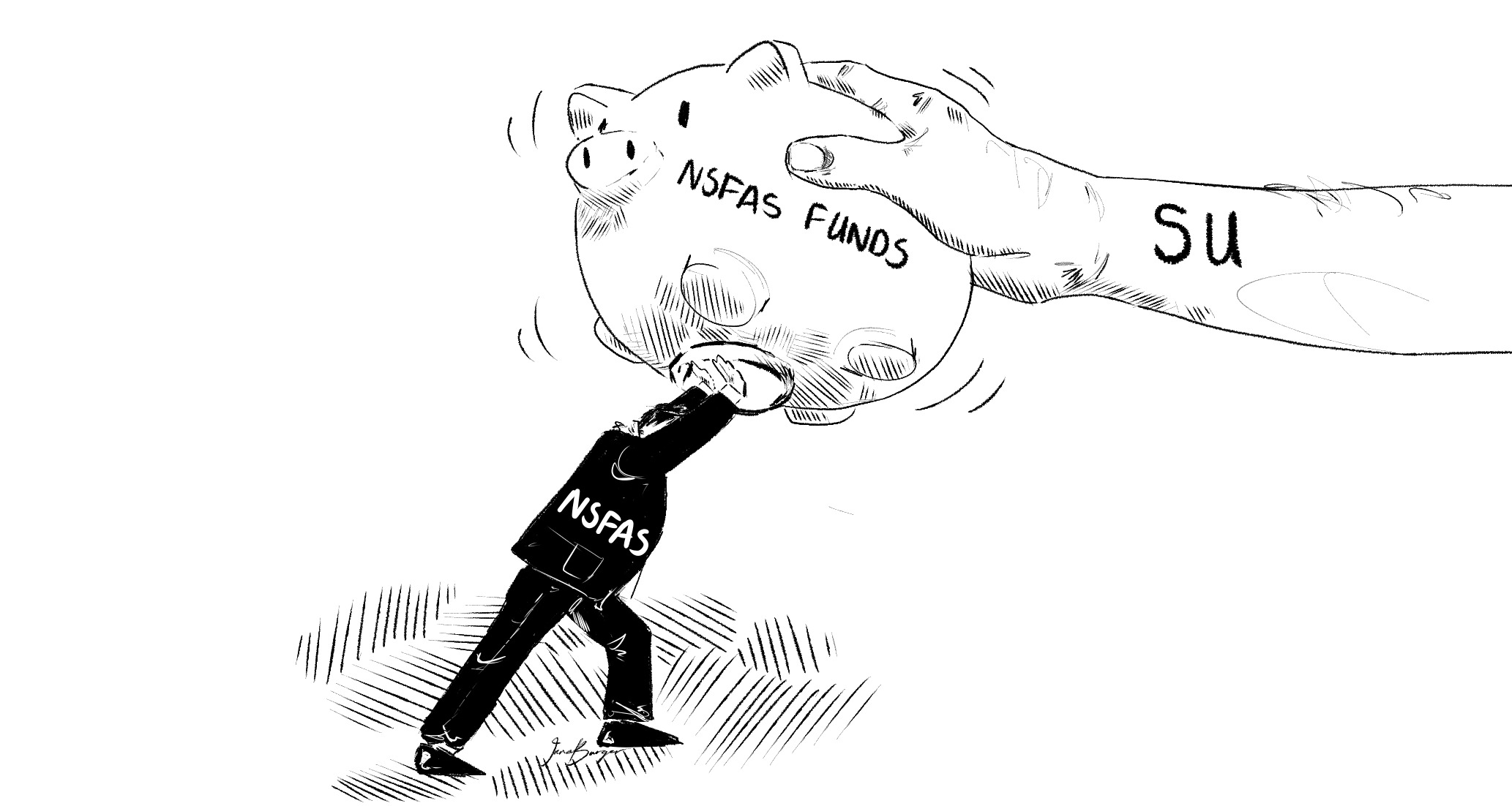Dominique Verster
A newly established branch of the Extinction Rebellion (XR) organisation, XR Winelands, directed the movement towards Stellenbosch University (SU) on 27 August and decorated campus with various mysterious posters.
According to the founder of XR Winelands, Caitlin Leatherby, she and a group of her friends decided to break away from the Cape Town division and spread the movement to the Winelands after growing interest in the cause became apparent on campus. The group of friends felt compelled to actively become part of the change, instead of cheering from the side-line due to the urgency of the situation.
Leatherby explains, “When [we pass this point of no return], we are not going to have the beautiful landscapes that we have now, people aren’t going to have the luxury of living the life we live. People can expect a completely alternative, [survivalistic lifestyle].”
The official website of Extinction Rebellion tells the story of how the overhead organisation, Extinction Rebellion International was launched in the UK on 31 October 2018 in response to the climate report published by the Intergovernmental Panel on Climate Change ( IPCC)According to the study, the earth is only 12 years away from irreversible and catastrophic damage as a result of climate change.
XR has spread to 500 countries around the world since the release of the study, in an attempt to prevent reaching this point of no return.
Chloë Menteath, one of the founders of XR Mzansi, the South African XR branch, says the movement was formed in South Africa to address urgent environmental matters. “We initiated XR Mzansi because we believe that we need a decentralised, peaceful movement that addresses the urgency of the climate breakdown and social injustice,” Menteath said in an interview with GroundUp.
In order to combat doomsday, Extinction Rebellion is pushing for three core demands to be met by governments around the world, as stated in the XR-manifesto on their webpage. The first demand is “for governments to tell the truth by declaring a climate and ecological emergency”.
“XR is pushing for collaboration between governments and other institutions to communicate the urgency for change,” the manifesto states.
The second demand calls for immediate action. “Governments are expected to act now to halt biodiversity loss and reduce greenhouse gas emissions to net-zero by 2025”.
Lastly, XR demands that the government create and be led by a citizen’s assembly. “In this, the citizens of a country should have a say in what happens in the climate and to bring solutions to the table,” Leatherby says. She revealed that the Winelands branch’s first point of call is to mobilise SU in working towards satisfying these demands. “We’ll follow these aims faculty by faculty. We are going to start small scale. The plan is to start with a single faculty and ask if they would consider going waste-free, making it
transparent how they develop their waste and what goes into it.”
Despite the organisation’s aim to mobilise the university, they are not interested in translating the movement into a society. Leatherby says the group will mainly work through Eco-Maties to arrange events. The branch has already been active in promoting events and protests to raise awareness for their cause. On 27 August, the same day that posters were put up, the group collaborated with Eco-Maties and XR Cape Town to host Rebel for the Amazon . This was a protest held outside of the Brazilian embassy to call for action in controlling the Amazon fires and curbing Amazonian deforestation.
XR Winelands also plans to join a Climate Strike that will take place on 20 September. Their most anticipated event, however, is the International
Rebellion , held 7 October. “All Extinction Rebellions around the world will be engaging on 7 October. That is the biggest event that we are heading towards. We will probably join the Cape Town movement.
The best thing to do is to follow our Instagram account (@xrwinelands) , and once we are up and sorted, we will post all the information.” Leatherby says. “[Change] has to come from the people. We would be putting pressure on the organisation when we say ‘no, we don’t want this anymore’ because there will be no demand.”
“When we go to the shops, we’ve got to look at what we buy; is it important, do we really need this excessive amount of plastic? Instead of driving cars, can you walk, can you take public transport, can you carpool? It’s the small things in everyday life,” said Leatherby.



